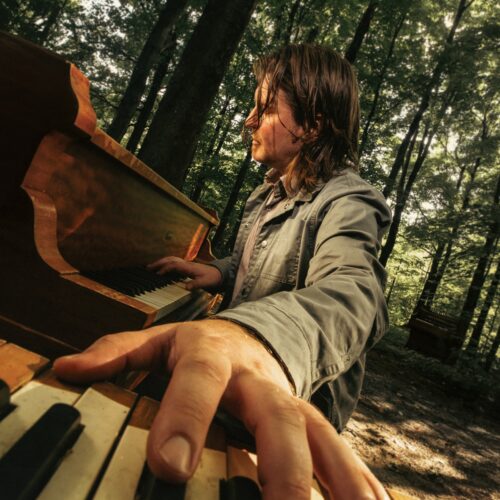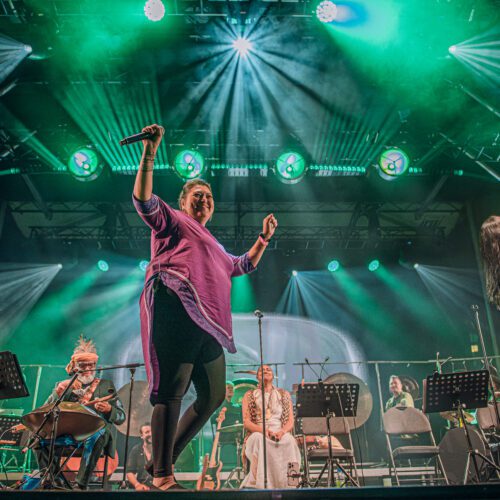Quebec-born Roman Zavada could be called “The pianist of the impossible”. He likes to play his instrument in improbable places that are difficult to access or where musical conditions are impractical. Remember his album Résonances boréales released in 2016: he went into the wilderness of the Far North to play, inspired by the northern lights.
This time, he planted two pianos in a forest near his home, letting them take root in the open air over two years of cold, snow, heat, rain and more. In short, something not to be attempted with your Hamburg Steinway. The man’s got pianos to lose, apparently. That said, the principle is clear: let them soak up the zeitgeist, literally, then come back to tease them to capture a certain spirit, or imprint, that nature would inevitably have etched into them.
What we hear here is technically surprising: the pianos sound just right, even though they’re veiled, even muffled. Is this possible? No doubt some precious care has been taken to prevent them sounding like decayed teeth rubbed on a chalkboard. What’s immediately noticeable, though, are the clicks and other mechanical noises (amplified, I’m guessing). At first, I found this very annoying. Like hearing a digital recording full of glitches, or an ugly vinyl scratch. But as I immersed myself in the artist’s conceptual intent, I began to better imagine these instruments in their verdant setting, amid trees and ferns. I began to find the whole thing more pleasing.
Especially as, musically, Zavada is fully up to the task. In other words, he’s doing what he’s been doing best for several years: beautifully melodic and unfailingly melancholy neoclassical pop instrumentation. What’s more, he adds a small chamber orchestra of strings, woodwinds and percussion to the mix, with a little synthesizer thrown in for good measure. What a great idea! In so doing, he succeeds in camouflaging the worst sonic wanderings of his cruelly abused instruments, and distracting our attention from the clattering gears that would have become, I think, unbearable if they’d been given all the space.
Forêt pour deux pianos (Forest for two pianos) is in the Alexandra Stréliski, or Chilly Gonzales, tradition, but with a small conceptually spectacular element that certainly won’t undermine his chances of shining with a wide audience.
























